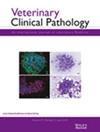Are Immune-Integrative Biomarkers Predictors of Systemic Inflammation in Show Jumping Horses?
Abstract
Objective
This study evaluated the dynamics of blood immune-inflammatory biomarkers in response to exercise-induced changes in jumping horses.
Methods
For this purpose, adult Brazilian Sport Horses (n = 9), aged 10.1 years, both sexes, underwent a specific training test consisting of warm-up, flatwork, and jumping exercises, and recovery on a 900 m2 sand track over 40 min. Clinical examinations and blood collections were performed at three time points: before (T0), immediately after (T1), and 1 h after (T2) the final exercise. Hematologic and biochemical parameters, such as total protein, globulin, albumin, creatinine, lactate, glucose, creatine kinase (CPK), and lactate dehydrogenase (LDH) were determined, and thus were calculated the following biomarkers: neutrophil-to-lymphocyte ratio (NLR), platelet-to-lymphocyte ratio (PLR), neutrophil-to-albumin ratio (NAR), albumin-to-globulin ratio (AGR), albumin-creatinine ratio (ACR), systemic immune-inflammation index (SII), and systemic inflammatory response index (SIRI). Data were analyzed using Shapiro–Wilk tests, ANOVA, Tukey tests, Kruskal–Wallis, and Dunn tests.
Results
Significant changes were found in heart rate (HR) and respiratory rate (RR), as well as in lactate, CPK, LDH, and glucose levels over time. Regarding the biomarkers, significant changes were observed: T0 to T1 in NAR, PLR, SIRI, and SII; T1 to T2 in NAR, PLR, NLR, AGR, SIRI, and SII; T0 to T2 in SIRI.
Conclusions
This study demonstrates that equestrian exercises promote changes in integrative immune-inflammatory biomarkers, making them promising for monitoring the performance of jumping horses.

 求助内容:
求助内容: 应助结果提醒方式:
应助结果提醒方式:


